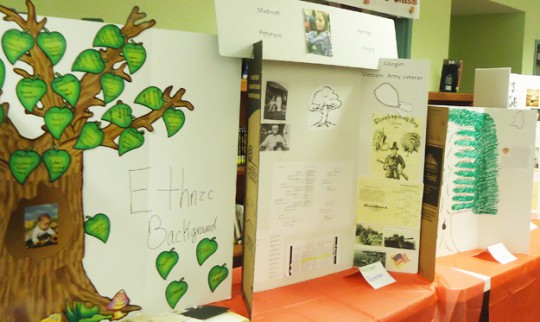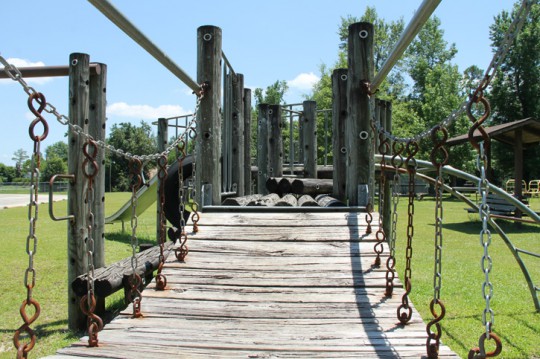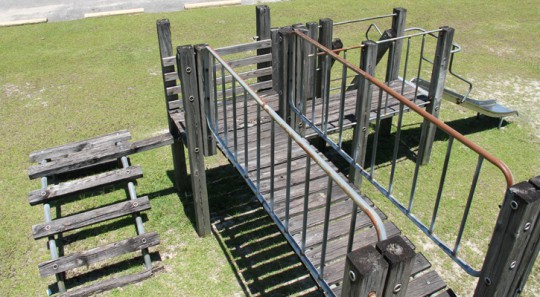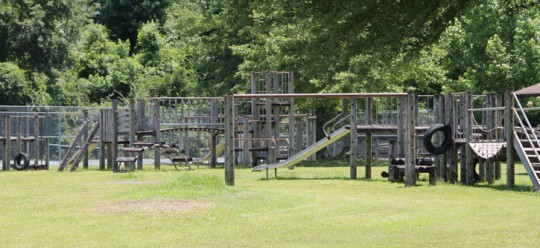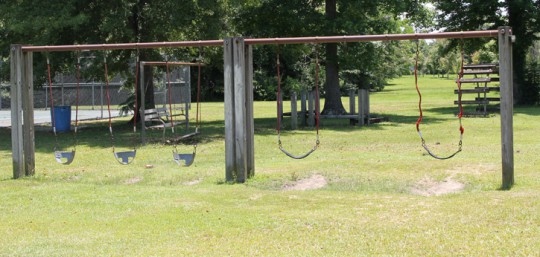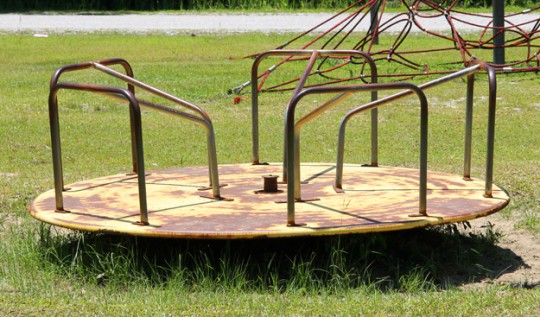Private Landowners Can Receive Southern Pine Beetle Assistance
June 10, 2014
Private landowners in Florida can now receive assistance in fighting the southern pine beetle thanks to a state program.
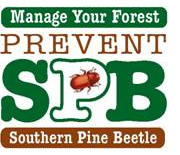 Florida Commissioner of Agriculture Adam H. Putnam announced Monday that the Florida Department of Agriculture and Consumer Services’ Florida Forest Service is now accepting applications for the Southern Pine Beetle Assistance and Prevention Program. The sign-up period will run through July 18 and is available for non-industrial private forest landowners.
Florida Commissioner of Agriculture Adam H. Putnam announced Monday that the Florida Department of Agriculture and Consumer Services’ Florida Forest Service is now accepting applications for the Southern Pine Beetle Assistance and Prevention Program. The sign-up period will run through July 18 and is available for non-industrial private forest landowners.
“The southern pine beetle is one of the most destructive forest pests in the southeast,” said Putnam. “By taking preventative measures now, Florida’s private landowners can greatly reduce their risk of timber loss during future outbreaks.”
Periodic outbreaks can rapidly kill millions of pine trees and deplete tens of thousands of acres of timber resources. The most recent series of major southern pine beetle outbreaks resulted in an estimated $59 million in timber loss between 1999 and 2002.
The program provides incentive payments for the following:
- Conducting a first pulpwood thinning
- Conducting prescribed burning operations
- Conducting mechanical underbrush treatments
- Planting longleaf or slash pine
“Since 2005, we have assisted many private forest land owners through this program,” said Jim Karels, director of the Florida Forest Service. “More than 150,000 Florida acres have been treated for southern pine beetle prevention.”
To learn more about this program and obtain an application form, contact a local Florida Forest Service office or visit www.FreshFromFlorida.com/SouthernPineBeetle/Prevention. Qualified landowners may apply for no more than two approved preventative practices per year. Funding requests may not exceed $10,000 annually. All qualifying applications will be evaluated and ranked for approval. This program is supported through a grant from the U.S. Forest Service.
Bratt Students Complete Heritage Projects Thanks To PCI Grant
June 10, 2014
Students that just completed the fifth grade at Bratt Elementary participated in a heritage project, thanks to computers and programs provided by a Poarch Creek Indian Endowment Grant.
 Students investigated, collaborated, and created a heritage project depicting the history of their ancestors. Students were encouraged to interview older family members and incorporate the interview into their project.
Students investigated, collaborated, and created a heritage project depicting the history of their ancestors. Students were encouraged to interview older family members and incorporate the interview into their project.
The students also presented a program entitled “Americans All”, a musical celebration of America’s multicultural heritage.
Courtesy photos for NorthEscambia.com, click to enlarge.
The Spice Kidz Go National With Winning Business Idea
June 10, 2014
Two local students are gearing up to pitch their newly launched business on a national stage, as they prepare to compete in a national competition being held in conjunction with the 10th Annual America’s Small Business Summit in Washington, D.C.
The siblings – Eve Knight, 12, and Liam Knight, 13 – were selected to compete in this year’s competition after winning the YEA! Saunders Scholars Regional Competition in Boca Raton, Fla., with their business, The Spice Kidz. The pair started their business as part of the first-ever Pensacola YEA! program.
 “Early education plays an important role in developing characteristics that are critical to becoming a successful entrepreneur,” said Greater Pensacola Chamber President Jerry Maygarden. “These two students demonstrate our region’s continued commitment to cultivating innovative qualities that can help our local youth succeed in any profession they choose to pursue.”
“Early education plays an important role in developing characteristics that are critical to becoming a successful entrepreneur,” said Greater Pensacola Chamber President Jerry Maygarden. “These two students demonstrate our region’s continued commitment to cultivating innovative qualities that can help our local youth succeed in any profession they choose to pursue.”
The Spice Kidz’ award-winning idea was to pre-package Indian-style spices to make curry and Vindaloo dinners. Twelve other middle- and high-school students from Escambia and Santa Rosa counties also launched their new businesses at Pensacola’s inaugural YEA! Trade Show in conjunction with Downtown Pensacola Gallery Night. A total of $6,600 in grants has been awarded to their businesses by several local investors and entrepreneurs, with The Spice Kidz earning the most with $1,200 in funding.
“Innovativeness and ambition are critical components that lead to professional success,” said Global Business Solutions, Inc. CEO Randy Ramos, a successful entrepreneur himself. “Programs like YEA! help to foster the entrepreneurial mindset in young people and gives them the opportunity to pursue their dreams by harnessing their energy, optimism and creativity.”
YEA! is a national educational program that guides 6th- to 12th-grade students through the process of starting and running real businesses over the course of a full academic year. Students work in close cooperation with local business leaders, educators and community members to develop ideas and objectives that help to create their own fully formed companies. Winners of this year’s national competition will be receiving scholarships, as well as the opportunity to audition for ABC’s hit TV show Shark Tank.
“Entrepreneurial education is more than just building a business plan and marketing a product or service,” said Dr. Ed Ranelli, Dean Emeritus for the University of West Florida College of Business. “Starting a business also includes learning about how to recognize opportunities and capitalize on them, which is a skill every young professional should master.”
Funds Available For Farmers, Ranchers To Help Declining Pollinators
June 9, 2014
Florida’s pollinators — like honeybees – are in trouble. City sprawl is overtaking their habitat, threatening wildflowers and ecosystems, along with the state’s agricultural industry. And now farmers and ranchers can get technical and financial assistance to help.
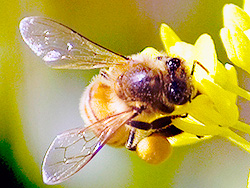 The USDA’s Natural Resources Conservation Service is funding $300,000 in Florida through the Environmental Quality Incentives Program to promote conservation practices that help reverse the loss of pollinator food and habitat. The signup deadline is July 18.
The USDA’s Natural Resources Conservation Service is funding $300,000 in Florida through the Environmental Quality Incentives Program to promote conservation practices that help reverse the loss of pollinator food and habitat. The signup deadline is July 18.
Some of the conservation practices that address loss of foraging habitat for pollinators include conservation cover, field borders and hedgerow planting. To learn more, contact the Milton Service Center at 6277 Dogwood Drive or call (850) 623-2441.
“This initiative will improve the state pollinators while reducing food costs by improving fruit and seed set in important agricultural commodities,” said Russell Morgan, Florida’s state conservationist.
Century Receives $50,000 Grant For New Playground Equipment
June 8, 2014
The Town of Century has received a $50,000 state grant to renovate the existing playground area at Showalter Park.
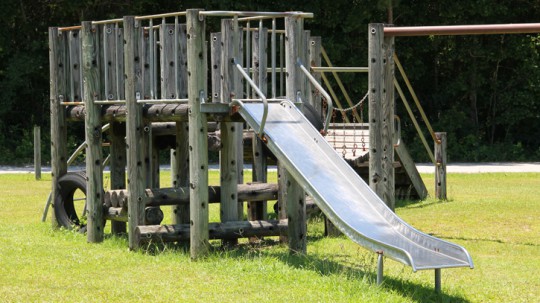 Last fall, the town followed a recommendation from the Century Recreation Advisory Committee a submitted two Florida Recreation Development Assistance Program applications. In addition to the Showalter renovation grant, the town also applied for a $125,000 grant to install a splash pad at the Anthony Pleasant Sportsplex, but that grant was not approved.
Last fall, the town followed a recommendation from the Century Recreation Advisory Committee a submitted two Florida Recreation Development Assistance Program applications. In addition to the Showalter renovation grant, the town also applied for a $125,000 grant to install a splash pad at the Anthony Pleasant Sportsplex, but that grant was not approved.
FRDAP is a competitive program which provides grants to local governments for outdoor recreational projects. The grants are administered by the Florida Department of Environmental Protection.
Pictured: The existing wood playground equipment at Showalter Park in Century. The town has received a $50,000 state grant to purchase new playground equipment. NorthEscambia.com photos, click to enlarge.
Vendors, Entertainers Needed For Twin Cities Watermelon Festival
June 8, 2014
Flomaton and Century are planning the Twin Cities First Annual Watermelon Festival. The event is planned for Saturday, June 28 from 9 a.m. until 5 p.m. at Showalter Park in Century.
The festival will include family fun, craft booths, food, entertainment and more.
Vendors and entertainers are needed. Vendors should click here for a booth application. Interested entertainers should call Kim at Century Town Hall at (850) 256-3208 or email kgodwin@centuryflorida.us.
The Twin Cities First Annual Watermelon Festival is sponsored in part by NorthEscambia.com.
Weekend Gardening: Expert Tips For The Month Of June
June 8, 2014
Here are gardening tips for the month of June from the Florida Extension Service:
Flowers
- Annuals to plant include celosia, coleus, crossandra, hollyhock, impatiens (pictured above), kalanchoe, nicotiana, ornamental pepper, portulaca, salvia, torenia, vinca and zinnia.
- Sow seeds of sunflowers. They are easy to grow if you have a sunny spot. Look for some of the new, dwarf varieties that can also be used as cut flowers.
- Remove old blooms (deadheading) to make flowers bloom longer.
- Allow the foliage on spring bulbs to grow. Do not cut it off until it turns yellow and falls over.
Trees and Shrubs
- Mature palms should receive an application of granular fertilizer. Use a special palm fertilizer that has an 8-2-12 +4Mg (magnesium) with micronutrients formulation. Apply one pound of fertilizer per 100 sq ft of canopy area or landscape area.
- Do any necessary pruning of junipers this month.
- Finish pruning the spring flowering shrubs such as azaleas, camellias, spiraeas, wisteria and forsythia by early June.
- This is the month to reproduce plants by budding.
- Check mulch around ornamental plants to be sure it’s two inches thick. Add mulch as needed to help keep weeds down and conserve water. Keep mulch one to two inches away from trunk or stem.
- Inspect maple trees, especially silver maple for infestations of maple soft scale. Look for a white substance with some black on one end. Individual maple scales are about 1/4 inch in diameter and resemble bird droppings. They occur mostly on leaves and can cause defoliation unless controlled.
- Inspect the undersides of azalea leaves for spider mites and lace bugs. If dry weather conditions exist, these insects can do some serious damage if not controlled.
- Check conifers for signs of bagworms. Call your local Extension Service for control measures.
Fruits and Nuts
- Harvest peaches, nectarines and plums as soon as they mature, before the squirrels and birds get to them
Vegetable Garden
- Side dress vegetable gardens with fertilizer containing nitrogen and potassium. A fertilizer such as a 15-0-15 can be used. Use approximately 2-3 cupfuls (1 to 1 ½ pounds) per 100 feet of row.
- Increase watering frequency and amount as tomatoes load up with fruit.
- Vegetables that can be planted outdoors include eggplant, lima beans, okra, southern peas, peppers and sweet potatoes.
- Sweet potatoes are started from plants or “draws”. Be sure to purchase only certified weevil free sweet potato plants.
- Check for the following pests and control them if necessary: tomato fruitworm, stinkbugs on vegetables and aphids on all new growth
Lawns
- Check for the lawn pests and control them if necessary: Spittlebugs in centipedegrass. They are more attracted to especially lush areas of the yard such as along septic drain fields and in areas where excessive nitrogen fertilizer has been used. Chinch bugs in St. Augustinegrass Sod webworm in all turf
- Start monitoring for mole cricket infestations and prepare for treatment.
Bacon And Eggs: Food Prices Up Slightly In Survey
June 8, 2014
Higher retail prices for several food items used to prepare breakfast, including bacon, eggs and bread, among other foods, resulted in a slight increase in the American Farm Bureau Federation’s latest Semi-Annual Marketbasket Survey.
The informal survey shows the total cost of 16 food items that can be used to prepare one or more meals was $53.27, up $1.73 or about 3.5 percent compared to a survey conducted a year ago. Of the 16 items surveyed, 10 increased, five decreased and one remained the same in average price.
“Several typical breakfast items increased in price, accounting for much of the modest increase in the marketbasket,” said John Anderson, AFBF’s deputy chief economist. “The 3.5 percent increase shown by our survey tracks closely with Agriculture Department’s forecast of 2.5 percent to 3.5 percent food inflation for 2014,” he said.
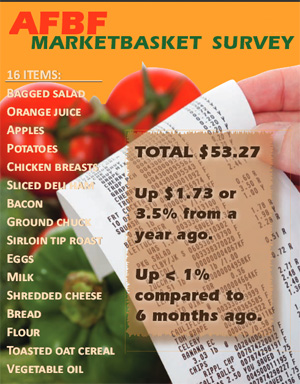 Items showing retail price increases from a year ago included bacon, up 12 percent to $4.80 per pound; ground chuck, up 10 percent to $4.10 per pound; white bread, up 10 percent to $1.81 for a 20-ounce loaf; sirloin tip roast, up 9 percent to $5.03 per pound; eggs, up 8 percent to $1.98 per dozen; whole milk, up 6 percent to $3.68 per gallon; chicken breasts, up 6 percent to $3.51 per pound; flour, up 5 percent to $2.76 for a 5-pound bag; toasted oat cereal, up less than 1 percent to $2.93 for a 9-ounce box; and Russet potatoes, up less than one-half of 1 percent to $2.70 for a 5-pound bag.
Items showing retail price increases from a year ago included bacon, up 12 percent to $4.80 per pound; ground chuck, up 10 percent to $4.10 per pound; white bread, up 10 percent to $1.81 for a 20-ounce loaf; sirloin tip roast, up 9 percent to $5.03 per pound; eggs, up 8 percent to $1.98 per dozen; whole milk, up 6 percent to $3.68 per gallon; chicken breasts, up 6 percent to $3.51 per pound; flour, up 5 percent to $2.76 for a 5-pound bag; toasted oat cereal, up less than 1 percent to $2.93 for a 9-ounce box; and Russet potatoes, up less than one-half of 1 percent to $2.70 for a 5-pound bag.
These items showed modest retail price decreases: bagged salad, down 4 percent to $2.61 per pound; deli ham, down 3 percent to $5.21 per pound; apples, down 3 percent to $1.59 per pound;
vegetable oil, down 2 percent to $2.85 for a 32-ounce bottle; and orange juice, down 1 percent to $3.24 per half-gallon.
Shredded cheddar cheese remained the same in price compared to a year ago, at $4.47 per pound.
Price checks of alternative milk and egg choices not included in the overall marketbasket survey average revealed the following: 1/2 gallon regular milk, $2.46; 1/2 gallon rBST-free milk, $3.87; 1/2 gallon organic milk, $3.97; and 1 dozen “cage-free” eggs, $3.33.
The year-to-year direction of the marketbasket survey tracks closely with the federal government’s Consumer Price Index report for food at home. As retail grocery prices have increased gradually over time, the share of the average food dollar that America’s farm and ranch families receive has dropped.
“Through the mid-1970s, farmers received about one-third of consumer retail food expenditures for food eaten at home and away from home, on average. Since then, that figure has decreased steadily and is now about 16 percent, according to the Agriculture Department’s revised Food Dollar Series,” Anderson said.
Using the “food at home and away from home” percentage across-the-board, the farmer’s share of this $53.27 marketbasket would be $8.52.
According to USDA, Americans spend just under 10 percent of their disposable annual income on food, the lowest average of any country in the world.
June Is Move Over, Slow Down, Save A Life Month
June 6, 2014
Move Over. They are two simple words that can mean the difference between life and death to the first responders who work alongside Florida’s busy highways.
In an effort to bring new awareness to Florida’s Move Over law, the Florida Highway Patrol and law enforcement agencies across the state have declared June as “Move Over – Slow Down – Save a Life” month.
During the month-long safety campaign, law enforcement officers will work together to better educate the public about the law and the threat that ignoring it can pose to first responders.
“Our troopers are out there every day working traffic stops and crash scenes along busy highways with cars speeding past them, often just feet away,” said Col. David Brierton, director of the Florida Highway Patrol. “And every day they face the real possibility of never going home to their families because someone fails to obey the Move Over law.”
Under Florida’s Move Over law:
- The law protects law enforcement officers, emergency workers and tow truck drivers stopped along roadways while performing their jobs;
- It requires motorists to move over when a patrol car, emergency vehicle or tow truck/wrecker is stopped on the side of a road with lights flashing. If such movement cannot be safely accomplished, motorists shall slow down to a speed of 20 mph below the posted speed limit.
- Approach the emergency vehicle with caution;
- Violating the Move Over law puts motorists and public safety professionals at risk.
Pictured: First responders work along Highway 97 last month. NorthEscambia.com photo, click to enlarge.
Fizz, Boom, Read: Summer Reading At The Library (With Molino Photo Gallery)
June 6, 2014
The Fizz, Boom, Read: Summer Reading Program made science and reading exciting for kids of all ages Thursday at both the Century and Molino branch libraries.
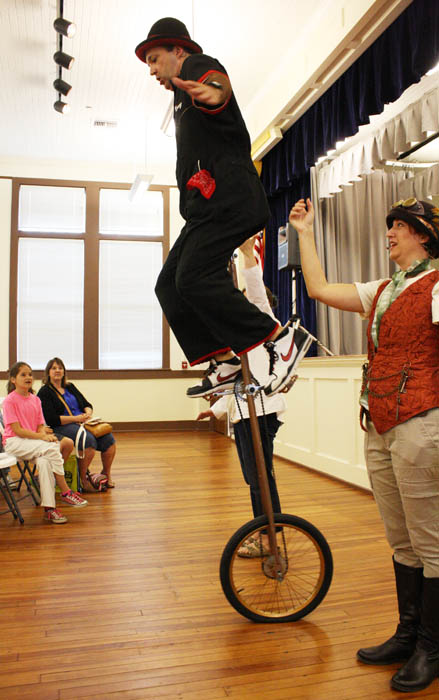 Children participated in the Page Turner’s Adventures with a story, magic tricks, and displays of talent.
Children participated in the Page Turner’s Adventures with a story, magic tricks, and displays of talent.
For a photo gallery from Molino, click here.
Children and teens 6-12 are invited to participate in the West Florida Public Library’s 2014 Fizz, Boom, Read program, which focuses on experimenting with STEM (Science, Technology, Engineering, Mathematics).
The interactive program is a fun way for students to keep their minds sharp throughout the summer months. Join the library for the summer reading game and interactive enrichment programs where there will be prizes for reading books, a chance to take part in science experiments and meet new people.
The program will continue through the summer until August 9.
Century Branch
Weekly on Thursday, 2:30 to 3:30 p.m.
- June 12
- June 19
- June 26
Molino Branch
Weekly on Thursday, 6 to 7 p.m.
- June 12
- June 19
- June 26
Tryon Branch
Weekly on Tuesday, 11 a.m.
- June 10
- June 17
- June 24
Main Library
Weekly on Wednesday, 3:30 to 4:30 p.m.
- June 11
- June 18
- June 25
Southwest Branch – program to be at Big Lagoon State Park Amphitheater (12301 Gulf Beach Highway)
Weekly on Wednesday, 10:30 to 11:30 a.m.
- June 11
- June 18
- June 25
Pictured: The Summer Reading Program Thursday evening at the Molino Branch Library. NorthEscambia.com photos by Bethany Reynolds, click to enlarge.



